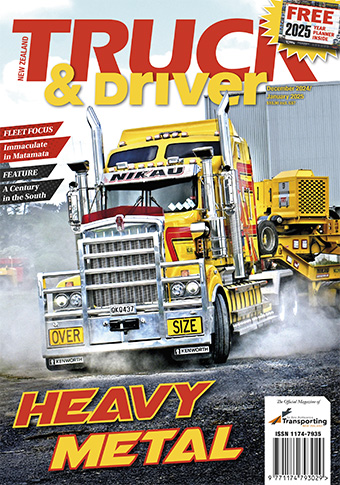
Our view on the Cook Strait ferries
Posted: 12-Jul-2024 |
First, a shout out about crossing the Cook Strait.
KiwiRail’s Interislander ferry Kaiarahi was back in service on time after its planned maintenance outage, and this week the Aratere was cleared by Maritime NZ to return to service. Many people will have been involved in getting these ferries back and I suspect they will have been working under considerable added pressure, so well done to all those people and organisations.
I use both ferry operators, KiwiRail and Bluebridge, and happened to be on the Strait Feronia recently. I loved seeing that the crew specifically reserve food for freight drivers in their kitchen/restaurant.
Last but not least, to the transport operators, their drivers, planners, and customers who have no doubt suffered considerable inconvenience, delays with the reduced capacity and needed to put in significant considerable extra effort arranging work-arounds to manage the reduced capacity of vessels – well done to all.
Given the grounding of the Aratere, it was not surprising that this ramped up interest about investment in rail and ferry infrastructure and it’s been impossible to escape the media interest. There has been a variety of opinions and claims about what the road freight industry wants.
It has been claimed that the road freight industry has called for the government to get out of the ferries, and that its decision to downgrade the ferry purchase was designed to provide the trucking industry with an advantage over rail transport. It has also been claimed that the bulk of the cost of New Zealand’s roads and their maintenance is due to the cost of trucks which don’t pay for their proper share.
I think it’s timely we clearly re-state our position.
The request from some in the trucking industry for government to get out of rail was not made by Transporting New Zealand. Our members include the largest NZ-owned transport companies and we have never advocated for any government to close down rail or hobble it to make it uncompetitive. In fact, a few months ago we joined one of our members, Wareing Group Ltd, to celebrate its opening of the intermodal road-rail Fairfield Freight Hub.
We do not believe that the current debate should focus on company structure or, more particularly, whether the government should have a financial interest in KiwiRail and the Interislander.
The discussion needs to focus on what is required to ensure there is a safe, regular, resilient, and competitive service to get people and freight across the Cook Strait. Equally important, those service providers must be commercially sustainable.
If there’s a strong focus on what’s needed to deliver those outcomes, then details like what the system looks like and what the appropriate company and governance structures underpinning the service providers are, will come out of that. So far, there’s been a lot of speculation but no definitive decisions by the government on replacing the KiwiRail ferries.
I would be more worried about the impact to service levels and resilience if Interislander vessels were reduced from three to two, rather than what the corporate company structure of the service providers looks like.
Regarding cost recovery of the road network, the Domestic Transport Costs and Charges Study was completed in April last year. That study was commissioned by the Ministry of Transport and undertaken by an independent consultant. Its key finding was that no road users pay their full share of the respective costs they impose on the network – however, the category of larger-sized trucks pays more of it share of the costs than any other category of road user.
The road rail debate will continue so I’ll leave you with some other numbers to put more context around the freight task modal share: Road freight transport accounts for 93 per cent of the total tonnage of freight moved in New Zealand (MoT National Freight Demands Study 2018). Air, rail, and coastal shipping move the balance. Not all that travels on rail goes across the Cook Strait, and currently only one out of the five vessels that ply their trade has roll-on roll-off rail.
We believe that each of the transport modes has an important role to play in moving people and freight and keeping the economy going.
Our members operate in a very competitive market and they, more than most, appreciate that their customers and clients want value-for-money, reliable, and resilient transport solutions. Our members are routinely challenged to provide the best solutions, regardless of mode. I can assure you of this because in my previous role in the fuel sector I was directly involved assessing the feasibility and viability of railing bulk fuel.
In 2021, our association rebranded from RTF (Road Transport Forum) NZ to Ia Ara Aotearoa Transporting New Zealand because our board and leadership team at the time recognised that to keep up we need to be thinking about much more than just roads and trucks.
Dom Kalasih, Interim Chief Executive, Ia Ara Aotearoa Transporting NZ




 + EQUIPMENT GUIDE - FREE
+ EQUIPMENT GUIDE - FREE
